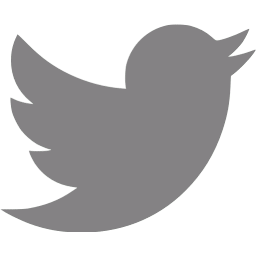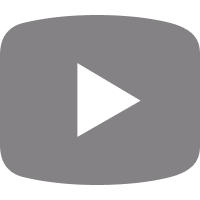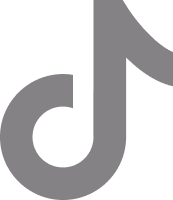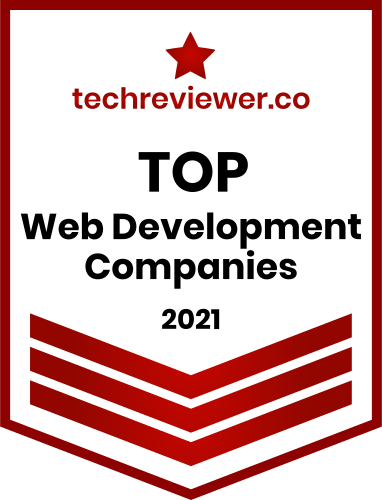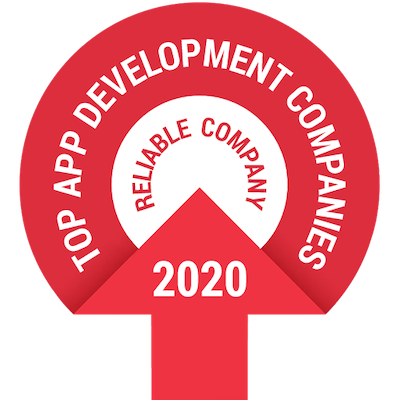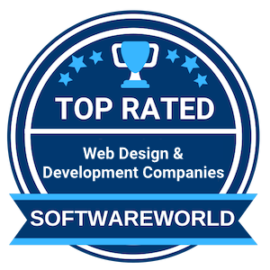
Keeping up with the trends in technology is like breathing: it’s a must. Since technologies come and go really fast, this is a huge challenge. A new framework today can be obsolete tomorrow.
Since you became a manager, you’ve been busy doing everything but focusing on technology.
You don’t get to write code nearly as much, and you’re dealing with entirely different challenges that eat up a lot of your capacity to learn.
Yet you can’t afford not to stay up to date with your specific technologies. And you must keep learning everything about being an engineering manager or tech leader as well.
And we all know what it’s like to get information from the internet.
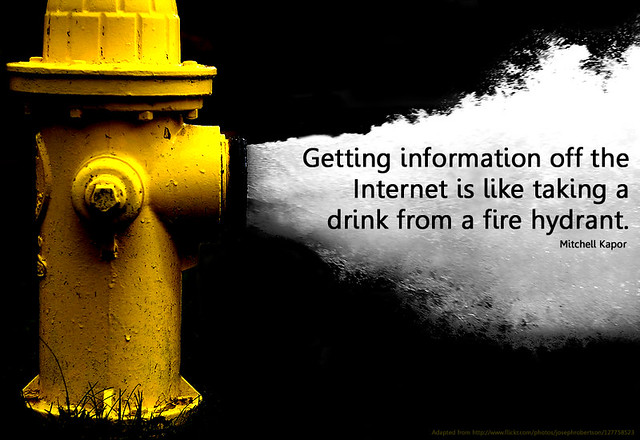
How do you find time to learn?
Where do you go for good info?
What are the best content formats to maximize learning?
Even Stack Overflow doesn’t hold all the answers, so we collected some tips from fellow tech leaders to help you stay on top.
In this post, we’re covering:
How to find the right resource for engineering managers?
Obviously, you want to follow the official channels of the technologies your team and you use. Whatever they have to share, you probably want to know about it.
Whether you like podcasts, blogs or anything else, it’s extremely useful for timesaving purposes not to go look for the best content yourself but to have it looked up for you. This is why most of us use roundups. It could be:
Newsletter
The simplest is to just sign up for a newsletter and to check it out whenever you receive the latest. We have our own weekly newsletter, Level-up Engineering, so if you’re interested in learning about software engineering management, check it out!
Cooperpress has great newsletters with more focus on development and the technical side of software engineering.
Social media
Some use LinkedIn or other social media platforms for the same purpose. As long as you follow the right people, you’ll see all the relevant content you want. It’s an effective way to get the best stuff via people you trust on any topic.
Make your own roundup
Another way is to have someone on your team put together the best content they stumble upon. Then all you need to do is check their top picks. If you share it within your team or company, it’s even better. It’ll likely be valuable for many of your colleagues as well.
Naturally, you shouldn’t push anyone to do this for you, as it tends not to be in the job description of developers. However, when someone consumes a lot of the good stuff anyway, you might as well get value out of it for your team and for yourself.
You can also do this by setting up a channel for your team to share whatever they find interesting and educational. Doing this will encourage your developers to read more, to share more, and to be on the same page in professional discussions.
Usually, teams use a dedicated channel on Slack to share interesting and useful content.
You might miss something
There isn’t any real downside to following roundups. You could mention the possibility of missing out on some good content if the curator doesn’t find it. But chances are, anything really good will make it into the spotlight, even if it takes longer.
The best resource types for tech leaders
Blog posts
Pros
Blog posts are a common way to gather good info and to gain actionable insight. They are usually written by real people facing and overcoming real challenges. It’s extremely useful to learn about problems and solutions people in your position have had. Also, blogs tend to be quick to react to new trends.
It’s useful for keeping up to date on solving different issues that arise with new updates, or how some old issues are gone because of them. Changelogs are great, but you often get the juicy, practical bits of an update or new tool out of blog posts detailing the way they actually work.
Good posts tend to be comprehensive, and you can find great summaries of experiences molded from many different sources, guides built on years of experience, and other stuff as well. For instance, our blog is doing regular interviews with tech leaders, covering the most common tech management-related challenges.
Cons
You need to find the right sources, as not every blog post is created equal. Otherwise, you’ll get lost in the ocean of blog posts. This is why we recommend using roundups.
Of course, blog posts involve reading, so they require your full attention. You can’t do anything else while reading. It may be to your advantage though; some studies show reading gives you better retention than listening.
Julian Vu, Lead Software Engineer, UniPlan
"I tend to prefer videos and online articles since they usually involve some sort of tutorial or guide that I can follow. These forms of content allow me to take a more hands-on approach to my learning, which is one of the most effective ways to learn new skills.
I’m also likely at my desk when watching videos or reading blog articles, so I can easily pause and search for other sources on the subject. While I can better ingest this knowledge, the likelihood that I’ll find tutorials on the most cutting-edge technologies or trends is lower than that of podcasts."
Recommended blogs:
Podcasts
Pros
Listening to podcasts is a popular choice. The market for them has been increasing over the last ten years, and it likely hasn’t peaked yet.
They are extremely useful to consume content while doing any task not requiring your full attention. This way, they are clearly a favorite, because they can save you a lot of time. It’s critical for the packed schedule of an engineering manager.
Listening leaves your hands and eyes free, so you can do it anytime when not focusing 100% on anything. You can listen to podcasts while driving, flying, exercising, cooking or doing just about anything.
Cons
There may be a downside too, even though the science is not solid behind this. Some researchers have concluded that listening is a less effective way to learn than reading, especially compared to reading print.
It’s partly due to you having to follow the rhythm of a discussion versus reading in your own speed. Another part may come from the fact that you are likely multitasking when listening to a podcast, so it won’t have your undivided attention. Whatever may be the case, it could be worth the trade-off when your schedule doesn’t allow for dedicated reading time.
Mike Gilfillan, Lead Developer at Edge of the Web
"I tend to get distracted or bored when reading books, but with podcasts, I can take in the content without feeling like I’m working my brain. I listen during my commute to work every morning. It’s a great way to get my mind in the right frame for the day ahead, and it gives me some interesting discussion points with my coworkers. I listen to a bunch of different podcasts dedicated to web development, but my favourite is ShopTalk."
Julian Vu, Lead Software Engineer, UniPlan
"Podcasts are a great way to keep a pulse on your industry or niche. However, I find that many podcast episodes on new topics feature specialists that assume I have prior knowledge on said topics. I get lost, and the whole discussion goes over my head. Since I’m usually listening to podcasts on my commute, I can’t conveniently stop to investigate further to clarify my confusions.
Despite this drawback, I find that I am more likely to discover new trends through podcasts than I am with other formats. Many podcasts follow an interview-style in which an expert in some field gives insight that can bring the latest trends in that field to light. Moreover, there are some podcasts that are live recordings of conferences and meetups that are almost always a fount of new trends and knowledge."
Recommended management focused podcasts:
Recommended tech focused podcasts:
Videos
Pros
Videos can be powerful information sources. Thanks to the graphical elements, videos can hold your hand and show you how to progress step by step.
These guide videos demand your full attention, especially if you’re dedicated to following it all the way, but you can utilize them in different ways. You might watch them while traveling or just fast-forward to find a specific information you’re looking for. This versatility is a huge upside.
Also, when it’s an interview, a lecture, or a meetup video discussion, videos function just like podcasts, so you get the same pros and cons.
Cons
There is no real downside to videos, except for the fact that to go through with detailed guides, you need to take the time with full attention. Also, going through detailed, step-by-step guides might be really hard while you commute on a crowded underground.
Sam Snyder, Chubb, Sr. Programmer Analyst and Scrum Master
"I like a variety of formats, depending on the situation. When I want to learn something with more technical detail such as specifics about a programming language, I prefer videos. Videos with code examples are especially helpful."
Recommended video channels:
Books
Pros
Books are a great source of information. You can find a book on a wide range of topics, and reading gives you great retention of knowledge. They are a great source to learn about engineering management, especially about management concepts.
Cons
It takes a long time to write, edit and publish a book, so it’s not a great tool to keep up with the daily changes of the tech industry. Books are great for education, but they are not exactly what you should use to get up to date with the latest trends. By the time a book is released, technologies, updates and practices have moved on.
Also, reading a book takes your full attention, which further narrows down the time you can spend on reading a book.
Books recommended by tech leads:
- Accelerate by Nicole Forsgren
- Servant Leadership by Robert K. Greenleaf
- The Advantage by Patrick Lencioni
- The Manager’s Path by Camille Fournier
How to make time to read and learn?
Tips from busy engineering managers:
Sam Snyder, Chubb, Sr. Programmer Analyst and Scrum Master
"I like a variety of formats, depending on the situation. For example, while driving, I love to listen to podcasts. When I want to learn something with more technical detail, such as specifics about a programming language, I prefer videos.
Videos with code examples are especially helpful. I read a lot of blog posts too. I prefer blog posts when I want to learn the pros and cons of something, such as best coding practices.
I am an avid reader. I read something tech or business related every day. I’m currently reading Servant Leadership by Robert K. Greenleaf. I get up early every morning to have a cup of coffee and read."
Julian Vu, Lead Software Engineer, UniPlan
"My manager encourages our team to spend two hours per week learning. I typically use that time for Pluralsight courses. I’m currently working through a DevOps training path on Pluralsight. In addition, I usually spend time reading in the evenings. There are so many books on my list!
To dedicate time for reading or learning can be difficult to do while keeping up with other personal and professional obligations. I fit them in when I am doing some mindless or menial task. I listen to podcasts on my commute instead of listening to music (so my time spent in traffic feels somewhat more productive). I read blog posts and books with my iPad on the treadmill. I watch YouTube videos on my niche when I’m cooking or washing dishes.
The point is that my mind is typically not very engaged in these situations, so I engage it by ingesting content. Some might argue that this is a very passive way to learn, but I think to learn passively is more beneficial than to not have made the effort to learn in the first place. When a topic really piques my interest, I will usually block out an hour or two of my nights and weekends to actively implement what I learned."
Conclusion
The key takeaway is that most successful engineering managers mainly use blog posts and podcasts to keep up with industry trends. Videos are standing at third place; they are extremely useful to teach you exactly how to use specific technologies. Books are still popular, but not the best way to keep up with the day-to-day of tech.
To fit it all into a busy schedule, you should utilize the time you spend doing trivial tasks, physical activity, or travel to switch your brain on as well with some of your favorite content.
Other sources:
Anvar Azizov, CTO, Lemon.io
Moamen Mashael, Lead Magento Developer, Best Response Media

